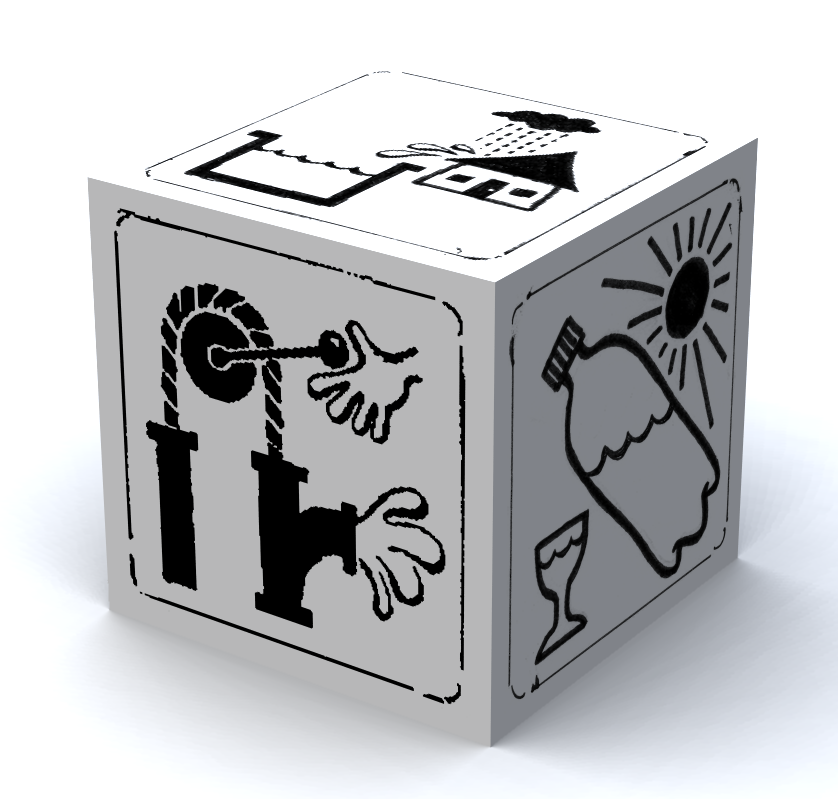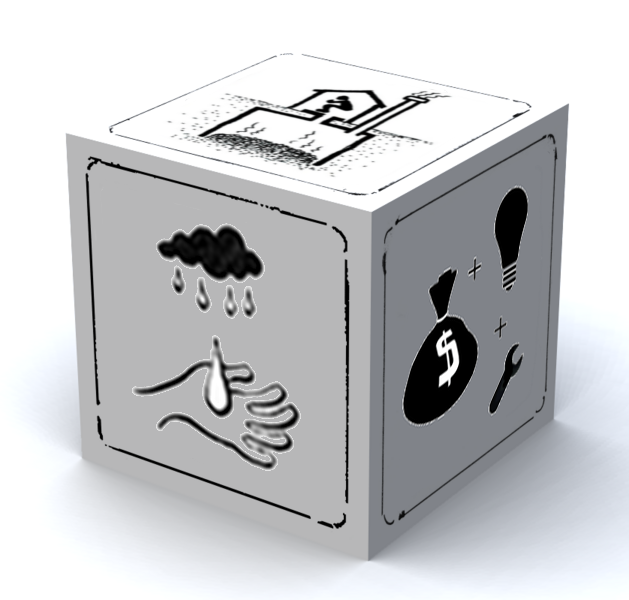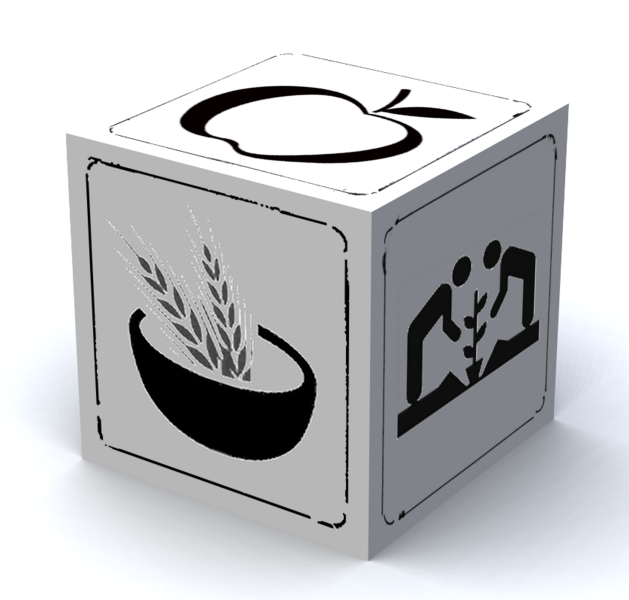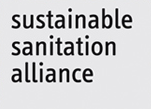Difference between revisions of "Akvopedia mobile"
From Akvopedia
| (17 intermediate revisions by the same user not shown) | |||
| Line 1: | Line 1: | ||
| − | + | <font color="#a0a2a3" size="3">Welcome, bienvenue and bienvenido to Akvopedia!</font> | |
<!----------"Welcome to Akvopedia" and article count----------> | <!----------"Welcome to Akvopedia" and article count----------> | ||
| − | Welcome to Akvopedia, the open water and sanitation resource | + | Welcome to Akvopedia, the open water and sanitation resource. We strive to improve water and sanitation projects through knowledge exchange on smart and affordable technical solutions and effective approaches. Akvopedia now contains [[Special:Statistics|{{NUMBEROFARTICLES}}]] articles primarily in English, including some in French and Spanish. Akvopedia is hosted and managed by [http://akvo.org/ Akvo Foundation]. |
| − | + | <br> | |
| − | < | + | For a full Akvopedia menu of options, visit our [http://akvopedia.org/wiki/Main_Page website]. |
| − | |||
| − | |||
| − | |||
| − | |||
| − | |||
| − | [ | ||
| − | |||
| − | |||
| − | |||
<!-----------------------Portals------------------------> | <!-----------------------Portals------------------------> | ||
| − | + | <font color="#d2eafb" size="5">WASH Portals</font> | |
| − | |||
{|width="100%" cellpadding="2" cellspacing="5" style="vertical-align:top; background:#ffffff;"| | {|width="100%" cellpadding="2" cellspacing="5" style="vertical-align:top; background:#ffffff;"| | ||
! <h2 style="margin:0; font-size:130%; text-align:left; color:#535353; padding:0.2em 0.4em;">Water Portal</h2> | ! <h2 style="margin:0; font-size:130%; text-align:left; color:#535353; padding:0.2em 0.4em;">Water Portal</h2> | ||
|- | |- | ||
| − | |<div class="floatleft" align=left >{{Icon|file=Water4icons.png|alt=Water Portal|width= | + | |<div class="floatleft" align=left >{{Icon|file=Water4icons.png|alt=Water Portal|width=80px|link=Water Portal}}</div> The [[Water Portal|Water Portal]] contains information on water collection, pumping and transportation, storage, treatment, and use of water. |
|- | |- | ||
!<h2 style="margin:0; font-size:130%; text-align:left; color:#535353; padding:.2em 0.4em;">Sanitation Portal</h2> | !<h2 style="margin:0; font-size:130%; text-align:left; color:#535353; padding:.2em 0.4em;">Sanitation Portal</h2> | ||
|- | |- | ||
| − | |<div class="floatleft" align=left >{{Icon|file=Sanitation4icons.png|alt=Sanitation Portal|width= | + | |<div class="floatleft" align=left >{{Icon|file=Sanitation4icons.png|alt=Sanitation Portal|width=80px|link=Sanitation Portal}}</div> The [[ Sanitation Portal |Sanitation Portal]] contains information on toilets, collection, transportation, treatment, use of products, hygiene, and training materials. |
|- | |- | ||
!<h2 style="margin:0; font-size:130%; text-align:left; color:#535353; padding:.2em 0.4em;">Finance Portal</h2> | !<h2 style="margin:0; font-size:130%; text-align:left; color:#535353; padding:.2em 0.4em;">Finance Portal</h2> | ||
|- | |- | ||
| − | |<div class="floatleft" align=left >{{Icon|file=finance portal box.png|alt=Finance Portal|width= | + | |<div class="floatleft" align=left >{{Icon|file=finance portal box.png|alt=Finance Portal|width=80px|link=Finance Portal}}</div> The [[ Finance Portal |Finance Portal]] contains information on the costs needed to finance, how to finance these costs, and how to monitor finance. |
|- | |- | ||
!<h2 style="margin:0; font-size:130%; text-align:left; color:#535353; padding:0.2em 0.4em;">Sustainability Portal </h2> | !<h2 style="margin:0; font-size:130%; text-align:left; color:#535353; padding:0.2em 0.4em;">Sustainability Portal </h2> | ||
|- | |- | ||
| − | |<div class="floatleft" align=left >{{Icon|file=sust portal icon.png|alt=Sustainability Portal|width= | + | |<div class="floatleft" align=left >{{Icon|file=sust portal icon.png|alt=Sustainability Portal|width=80px|link=Sustainability Portal}}</div> The [[Sustainability Portal|Sustainability Portal]] contains information on numerous sustainability frameworks, tools, and methods, using the F.I.E.T.S approach. |
|- | |- | ||
| − | !<h2 style="margin:0; font-size:130%; text-align:left; color:#535353; padding:0.2em 0.4em;">Decision & Assessment Tools | + | !<h2 style="margin:0; font-size:130%; text-align:left; color:#535353; padding:0.2em 0.4em;">Decision & Assessment Tools </h2> |
|- | |- | ||
| − | |<div class="floatleft" align=left >{{Icon|file=decisions portal box.png|alt=Decision & Assessment Tools|width= | + | |<div class="floatleft" align=left >{{Icon|file=decisions portal box.png|alt=Decision & Assessment Tools|width=80px|link=Decision & Assessment Tools}}</div> The [[Decision & Assessment Tools|Decision & Assessment Tools]] contain several tools, assessments, or kits that aid in the implementation of water and sanitation projects in an easier way. |
| − | + | |} | |
| − | |} | + | <font color="#d2eafb" size="5">Agricultural Portals</font> |
| − | |||
| − | < | ||
{| | {| | ||
| − | !<h2 style="margin:0; font-size:130%; text-align:left; color:#535353; padding:0.2em 0.4em;"> | + | !<h2 style="margin:0; font-size:130%; text-align:left; color:#535353; padding:0.2em 0.4em;">Sustainable Oil Palm Farming </h2> |
|- | |- | ||
| − | + | |<div class="floatleft" align=left >{{Icon|file=SNV logo.png|alt=Sustainable Oil Palm Farming|width=80px|link=Sustainable Oil Palm Farming}}</div> The [[Sustainable Oil Palm Farming|Sustainable Oil Palm Farming]] contain several tools, assessments, or kits that aid in the implementation of water and sanitation projects in an easier way. | |
| − | |||
| − | |||
| − | |||
| − | |||
| − | |||
| − | |||
| − | |||
| − | |||
|- | |- | ||
| − | !<h2 style="margin:0; | + | !<h2 style="margin:0; font-size:130%; text-align:left; color:#535353; padding:0.2em 0.4em;">Food & Nutrition Security</h2> |
|- | |- | ||
| − | | | + | |<div class="floatleft" align=left >{{Icon|file=Food-security-box.png|alt=Food & Nutrition Security Portal|width=80px|link=Food & Nutrition Security Portal}}</div> The [[Food & Nutrition Security Portal|Food & Nutrition Security Portal]] exists when all people, at all times, have physical, social and economic access to food, which is safe and consumed in sufficient quantity and quality to meet their dietary needs and food preferences, and is supported by an environment of adequate sanitation, health services and care, allowing for a healthy and active life (CFS). |
| + | |} | ||
| + | <font color="#d2eafb" size="5">Theme Portals</font> | ||
| + | {| | ||
| + | !<h2 style="margin:0; font-size:130%; text-align:left; color:#535353; padding:0.2em 0.4em;">School Sanitation Stories</h2> | ||
|- | |- | ||
| − | + | |<div class="floatleft" align=left >{{Icon|file=susana logo.png|alt=School Sanitation Stories|width=80px|link=School Sanitation Stories}}</div> The [[School Sanitation Stories|School Sanitation Stories]] show projects in the field in the various geographic regions around the world. Often NGOs are sharing their own projects, a technology is demonstrated, or a method of sustainable water and sanitation is shared. | |
|- | |- | ||
| − | + | !<h2 style="margin:0; font-size:130%; text-align:left; color:#535353; padding:0.2em 0.4em;">Accessible WASH Design</h2> | |
| − | |||
|- | |- | ||
| + | |<div class="floatleft" align=left >{{Icon|file=WaterAid logo.png|alt=Accessible WASH Design|width=80px|link=Accessible WASH Design}}</div> The [[Accessible WASH Design|Accessible WASH Design]] pages are useful for disabled, elderly, the sick, and children - all those who need special help with accessing and using sanitation facilities. It is made for use by staff, working directly with communities - e.g. health workers and community volunteers working with disabled and older people and their families in rural areas of sub-Saharan Africa, and beyond. | ||
|} | |} | ||
Latest revision as of 23:56, 3 December 2017
Welcome, bienvenue and bienvenido to Akvopedia!
Welcome to Akvopedia, the open water and sanitation resource. We strive to improve water and sanitation projects through knowledge exchange on smart and affordable technical solutions and effective approaches. Akvopedia now contains 2,211 articles primarily in English, including some in French and Spanish. Akvopedia is hosted and managed by Akvo Foundation.
For a full Akvopedia menu of options, visit our website.
WASH Portals
ContentsWater Portal |
|---|
The Water Portal contains information on water collection, pumping and transportation, storage, treatment, and use of water.
|
Sanitation Portal |
The Sanitation Portal contains information on toilets, collection, transportation, treatment, use of products, hygiene, and training materials.
|
Finance Portal |
The Finance Portal contains information on the costs needed to finance, how to finance these costs, and how to monitor finance.
|
Sustainability Portal |
The Sustainability Portal contains information on numerous sustainability frameworks, tools, and methods, using the F.I.E.T.S approach.
|
Decision & Assessment Tools |
The Decision & Assessment Tools contain several tools, assessments, or kits that aid in the implementation of water and sanitation projects in an easier way.
|
Agricultural Portals
Sustainable Oil Palm Farming |
|---|
The Sustainable Oil Palm Farming contain several tools, assessments, or kits that aid in the implementation of water and sanitation projects in an easier way.
|
Food & Nutrition Security |
The Food & Nutrition Security Portal exists when all people, at all times, have physical, social and economic access to food, which is safe and consumed in sufficient quantity and quality to meet their dietary needs and food preferences, and is supported by an environment of adequate sanitation, health services and care, allowing for a healthy and active life (CFS).
|
Theme Portals
School Sanitation Stories |
|---|
The School Sanitation Stories show projects in the field in the various geographic regions around the world. Often NGOs are sharing their own projects, a technology is demonstrated, or a method of sustainable water and sanitation is shared.
|
Accessible WASH Design |
The Accessible WASH Design pages are useful for disabled, elderly, the sick, and children - all those who need special help with accessing and using sanitation facilities. It is made for use by staff, working directly with communities - e.g. health workers and community volunteers working with disabled and older people and their families in rural areas of sub-Saharan Africa, and beyond.
|





